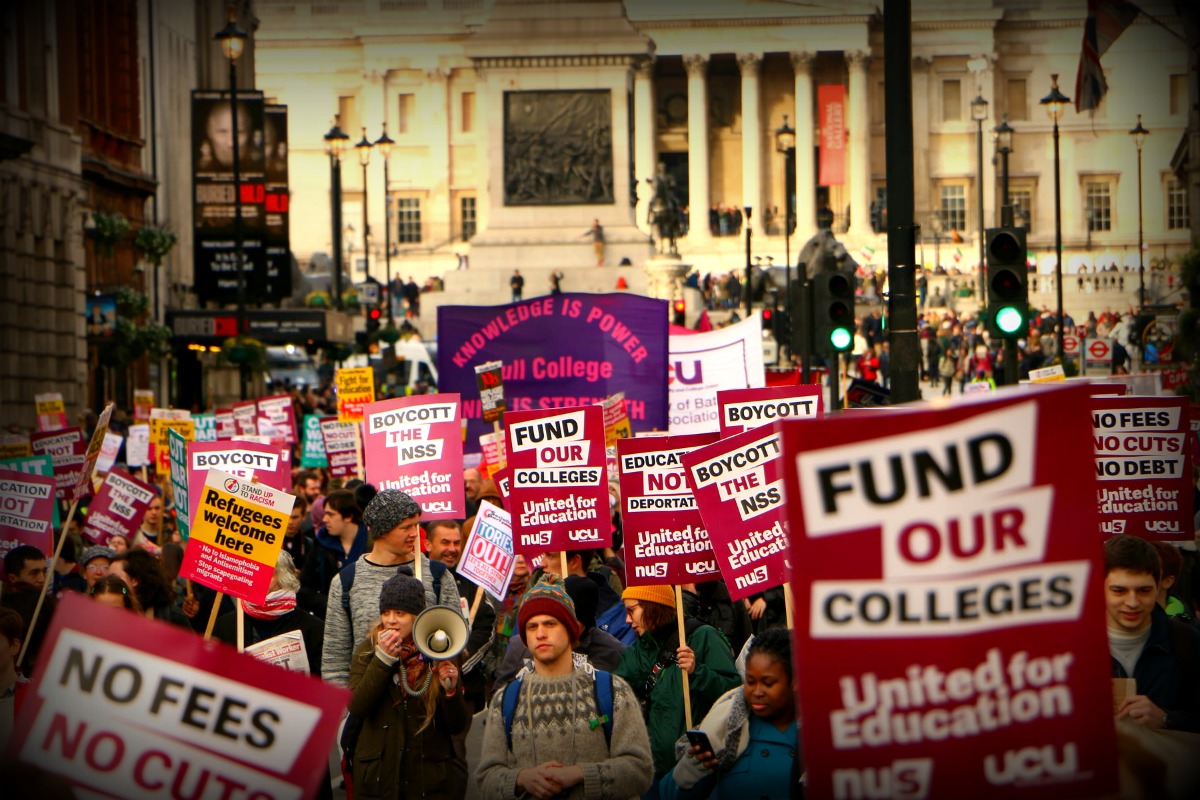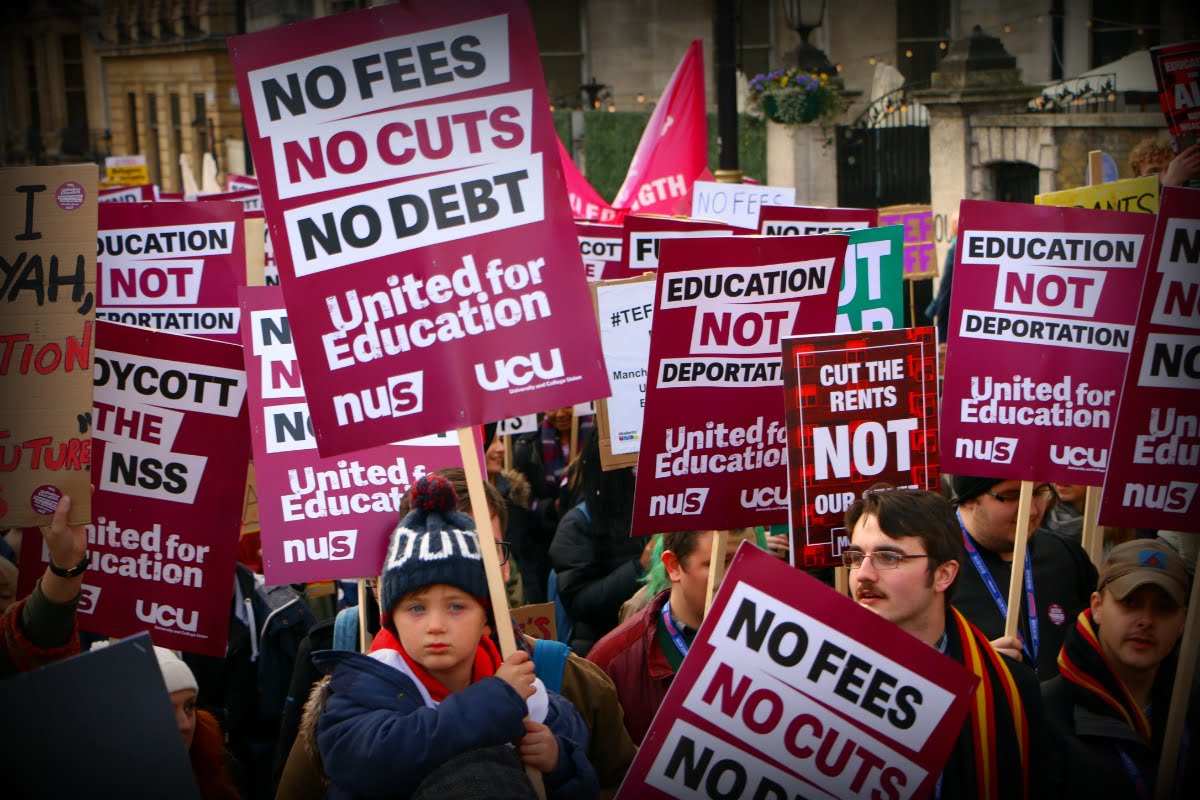The bulk of the time at this year’s NUS conference was spent discussing how to save the union from financial ruin. The only way forward is to transform the union with fighting leadership and bold socialist policies.
This year’s National Union of Students (NUS) conference, taking place in Glasgow last week, was dominated by the so-called ‘turnaround motion’ – a plan which aims to save the NUS from bankruptcy and make it financially viable. The reforms contained within the motion include stripping back the number of full-time officers employed by the NUS, removing the National Executive Committee (NEC), as well as cutting the funding of campaigns and liberation groups.
Evidently, the rationale behind the reform is to sacrifice whatever it takes to keep the NUS afloat, even at the expense of further alienating the organisation from the wider student movement. These plans completely overlook the fact that the reason that the NUS is failing in the first place is because it doesn’t offer students what is needed: fighting leadership; mass organisation and action; and bold socialist policies.
Vicious circle
 The overall mood at this year’s conference was one marked by bitter hostility, reflecting the deep factional divisions which run to the heart of the NUS itself. The outgoing president Shakira Martin had to be led out of the conference floor by staff at one point, due to a heated outburst aimed at a delegate who spoke out against her failure to defend liberation campaigns.
The overall mood at this year’s conference was one marked by bitter hostility, reflecting the deep factional divisions which run to the heart of the NUS itself. The outgoing president Shakira Martin had to be led out of the conference floor by staff at one point, due to a heated outburst aimed at a delegate who spoke out against her failure to defend liberation campaigns.
It is certainly disappointing to see that – at a time of immense social unrest, when we are potentially on the verge of toppling the Tory government – the leadership are more concerned with petty infighting than trying to mobilise and organise students. Such infighting is a clear indictment of how bureaucratic and detached the NUS has become.
Indeed, at a time when students are becoming increasingly frustrated by the failures of capitalism and are looking for a way to mobilise themselves across the country, the NUS is becoming more detached, inwards-looking, and irrelevant than ever. The leadership are attempting to run the organisation like a business, making cutbacks and readjustments. Instead, what the NUS needs to do is undertake a radical upheaval which puts the demands of students at the forefront.
After much deliberation, an amended version of the reform was passed. As a result, while important parts of the NUS – such as the trans campaign – have been preserved, the future of the NUS remains in the balance.
In stripping back key parts of its governance, such as the NEC, the NUS will be preventing its ability to respond to the demands of students effectively. Given that the NUS has voted itself into irrelevancy, we can expect to see a continued wave of disaffiliations, which will in turn cause increased financial pressure on the union, creating a vicious circle.
Workers and students: unite and fight!
 With regards to the leadership elections, the successful candidates did not seem to offer the kind of radical programme needed to reinvigorate the NUS.
With regards to the leadership elections, the successful candidates did not seem to offer the kind of radical programme needed to reinvigorate the NUS.
President-elect Zamzam Ibrahim put forward the idea of organising a ‘national student strike’ to fight for the demands of students. If organised, this would be a welcome change compared to the passivity seen under previous NUS leaderships. The task now is to translate words into deeds, and to add flesh to these barebone proposals.
If a student strike is to be organised, it should link up with its natural allies: the #YouthStrike4Climate school student movement; and, more importantly, with the wider labour movement.
In recent years, we have seen strike action amongst lecturers and other university staff, such as cleaners. These, along with other public sector unions, should be approached by NUS leaders with the aim of organising nationally coordinated action of workers and students. Such a movement has the potential to bring down the Tories and pave the way for a Labour government to come to power.
For a fighting NUS
 While the time allotted to discussing motions was sidelined by the lengthy reform motion, there was still a good amount of political discussion to be had.
While the time allotted to discussing motions was sidelined by the lengthy reform motion, there was still a good amount of political discussion to be had.
Marxist delegates submitted motions and amendments concerning ending precarious work and funding free education through expropriation. While only the former was passed, it was encouraging to see that a considerable number of people supported our amendment in favour of nationalising the top monopolies and banks in order to provide free education for all students.
Overall, however, it is clear that the NUS has failed to find a solution to its current state of decline, as it continues to distance itself from the students it is supposed to represent. While the financial reforms may save the organisation from bankruptcy in the short-term, they fail to address the root of the problem.
The future of the NUS doesn’t look promising. But there is still hope that the NUS can transform itself into a fighting union – one that could be the focal point of the struggles against tuition fees, precarious work, exploitation in the student housing market, and many other issues that students face.
Moreover, there is hope that the NUS can go on to make links to the wider labour movement. It is only through the unity of students and workers that any radical demands can be fought for and won. This and more can be achieved. The key is to organise and fight!






